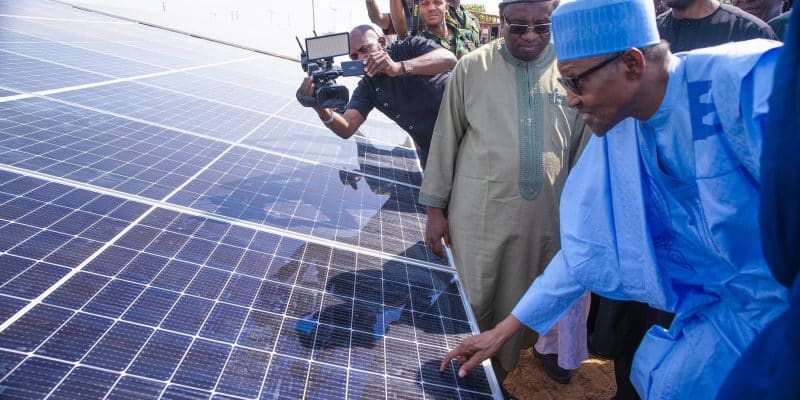The Kumbotso solar power plant was recently inaugurated in Kano State by the President of the Federal Republic of Nigeria Muhammadu Buhari. The plant, which required an investment of $15 million, has a capacity of 10 MWp.
Despite his convoy being pelted by youths in Kano, the Nigerian president travelled to Kumbotso Local Government Area to inaugurate a 10 MWp solar photovoltaic plant. This is the first ever grid-connected solar power plant in the Federal Republic of Nigeria.
https://twitter.com/Muvvido/status/1620737057328070657?ref_src=twsrc%5Etfw%7Ctwcamp%5Etweetembed%7Ctwterm%5E1620737057328070657%7Ctwgr%5Ed0fce1d2e3f08193d0e68bc1ec496e775eaabeb7%7Ctwcon%5Es1_&ref_url=https%3A%2F%2Fwww.afrik21.africa%2Fwp-admin%2Fpost.php%3Fpost%3D55036action%3Dedit
The project, which was tendered in 2020, is being implemented by Haske Solar Company, a special purpose vehicle set up at the request of the Federal Government by the Nigeria Sovereign Investment Authority (NSIA). Haske Solar is therefore 80% owned by the Federal Government of Nigeria, 15% by Kano State and 5% by Kumbotso Local Government.
15 million investment
The park covers a 24-hectare site just 16 km from Kumbotso. “It is currently the largest grid-connected solar plant and is proof of a successful medium-sized solar deployment in Nigeria. The park will catalyse the growth of the power sector, as it shows that renewable projects of this scale can be achieved,” said Aminu Sagir, the managing director of Nsia at the inauguration ceremony. The construction of the Kumbotso solar plant required an investment of $15 million.
Read also- NIGERIA: DEG finances the installation of eight solar micro-grids by Husk Power
According to him, the implementation of this project launched in 2018 reinforces Nigeria’s credibility in the fight against climate change and its commitment to achieve carbon neutrality by 2060. The success of the Kumbotso project also demonstrates the potential for Nigeria to build its economy on decarbonised energy.
Although the West African country is already relying on solar power to electrify its rural areas, the Nigerian government has yet to initiate a real policy to attract the independent power producers (IPPs) that are building solar power plants in other developing countries in Africa, such as Kenya, Egypt and South Africa. Currently, Nigeria has an installed capacity of over 16,000 MW, of which 2,000 MW is from renewable sources.
Jean Marie Takouleu






